
 Flash News
Flash News
Three cars collide in Tirana, one of them catches fire
He abused his minor daughter, this is a 36-year-old man in custody in Fier
Serious in Fier! Father sexually abuses his minor daughter
The phone found in prison is expected to be disassembled, Laert Haxhiu risks isolation in '41 biss'
24 thousand bullets from Albania to Crete: How was the criminal network destroyed by the Greek police?
EU Commissioner asks Serbian Prime Minister for cooperation on reforms: The will of the Serbian people must be heard
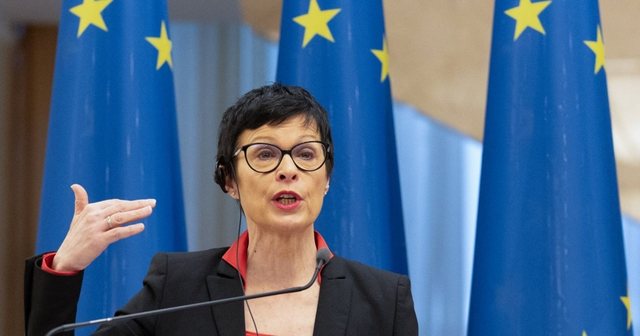
“Work with us on reforms, so that your membership in the European Union becomes possible,” said European Commissioner for Enlargement, Marta Kos, in Belgrade, after meeting with Serbian Prime Minister, Gjuro Macut, on April 29. Kos highlighted judicial reform, the fight against corruption, media freedom and improving the electoral process as problems that Serbia needs to work on.
"Work with us to create an independent judiciary that can effectively fight corruption, to enforce the law and to create institutions that will enable free media, where all opinions are represented," the European Commissioner emphasized.
"Work with us to establish an electoral framework that will ensure that the will of the Serbian people is heard and that decisions are made based on it," she added.
The European Commissioner assessed that without these changes, Serbia "cannot progress".
"What we are asking for is actually very close to what the people protesting in the streets are asking for," Kos said, referring to the months-long mass protests in Serbia.
A day earlier, during a visit to Prague, Kos also spoke about Kosovo's application for EU membership, saying that before Kosovo receives candidate country status, it will have to meet several preconditions, such as normalizing relations with Serbia.
She described her first meeting with Prime Minister Macut, since taking office as head of the Serbian Government, as "very positive".
She said she supports Serbia's European integration and expects the government to "do its part."
"I am confident that I can count on you as a partner in this effort," she told the prime minister.
The European Commissioner added that she shares the same position as Prime Minister Macut regarding solving problems in society through the involvement of all actors.
"Because true transformation must come from within, it cannot come from without," she added.
Kos announced that during the two-day visit to Belgrade there will be a series of meetings.
She said she will meet with representatives of the ruling and opposition political parties, civil society organizations, as well as with representatives of students who have blocked the faculties, but also with those who are against the blockades.
Prime Minister Gjuro Macut stated that commitment to European integration is the "absolute priority" of the government he leads.
"Accelerating the process, opening new negotiating classes, will constitute the basis of the work of the Government of Serbia," he added.
He expressed hope that the issue of education will be one of the key elements of Commissioner Kos's visit to Belgrade.
"To support our efforts to establish dialogue, to preserve that dialogue that has been frozen over the past few months. That its strong support will influence us to establish this process as soon as possible and that in the coming days we will return Serbia to the right path in the field of education, that is, to where we stopped a few months ago," added Macut.
He assessed that although negotiations with the EU have not progressed at the desired speed in the last three years, Serbia is "intensively implementing" reforms to improve the rule of law.
The six-month-long mass protests and student blockades were sparked by an accident at the Novi Sad Railway Station, where a ceiling collapse in early November killed 16 people.
The government claims that the students' demands have been met, inviting them to unblock the faculties.
Students, on the other hand, declare that their demands have not been met and that the blockades will continue.
The student protests have become a symbol of a broader dissatisfaction with the rule of law in Serbia – including the question of whether systemic negligence and corruption led to the collapse of the roof at Novi Sad's railway station and the deaths of 16 people.
Behind the students' demands stand, in addition to hundreds of thousands of citizens who have gathered for months in protests, many university professors, education workers, farmers, lawyers and actors./ REL
Latest news

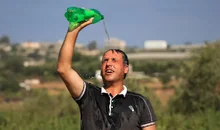
UN: The world must learn to live with heat waves
2025-07-01 15:54:50
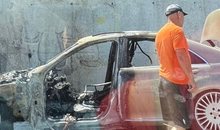
Three cars collide in Tirana, one of them catches fire
2025-07-01 15:38:16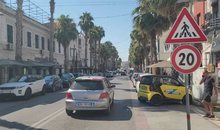
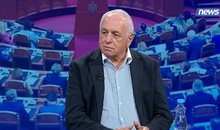
Shehu: Whoever doesn't want Berisha, doesn't want the opposition 'war'!
2025-07-01 15:19:20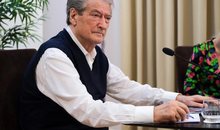
Berisha requests the OSCE Assembly: Help my nation vote freely
2025-07-01 15:11:46
Be careful with medications: Some of them can harm your sex life
2025-07-01 15:00:32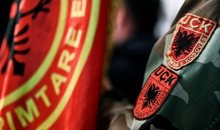
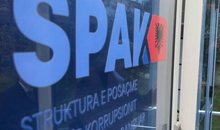
'Golden Bullet'/ Lawyers leave the courtroom, Altin Ndoc's trial postponed again
2025-07-01 14:44:52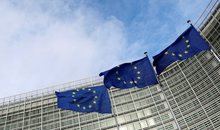
EU changes leadership, Kosovo in a number of places
2025-07-01 14:40:01
Should we drink a lot of water? Experts are surprised: You risk hyponatremia
2025-07-01 14:30:20

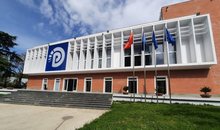
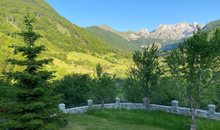
Lëpusha beyond Rama's postcards: A village that is being silently abandoned
2025-07-01 13:41:56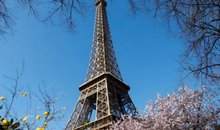
Scorching temperatures in France close the Eiffel Tower
2025-07-01 13:29:35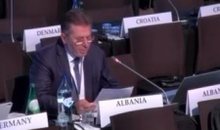
Media: China, Iran and North Korea, a threat to European security
2025-07-01 13:20:12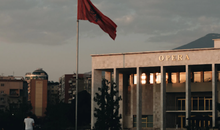
Albania drops in global index: Less calm, more insecure
2025-07-01 13:09:35
Road collapses, 5 villages in Martanesh risk being isolated
2025-07-01 13:03:04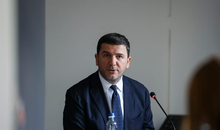
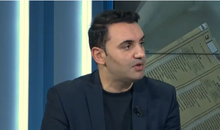
Këlliçi: Opposition action to be decided in September
2025-07-01 12:48:49
Four tips for coping with the heat wave
2025-07-01 12:38:53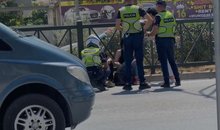
Car hits pedestrian on Transbalkan road
2025-07-01 12:27:09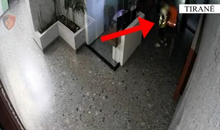
Authors of 9 robberies, Erjon Sopoti and Abdullah Zyberi arrested
2025-07-01 12:15:56
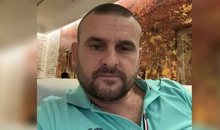
He abused his minor daughter, this is a 36-year-old man in custody in Fier
2025-07-01 11:50:34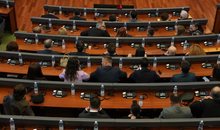
The constitution of the Kosovo Assembly fails for the 40th time
2025-07-01 11:40:08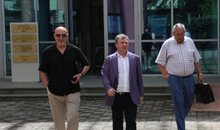



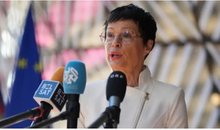
EU confirms support for the Western Balkans
2025-07-01 10:50:45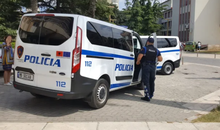
Serious in Fier! Father sexually abuses his minor daughter
2025-07-01 10:32:33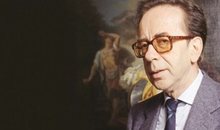
One year since the passing of the colossus of Albanian literature, Ismail Kadare
2025-07-01 10:25:26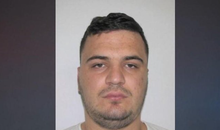


They supplied the 'spaçators' with drugs, two young men are arrested in Tirana
2025-07-01 09:54:09
Europe is "scorching", how dangerous are high temperatures?
2025-07-01 09:48:56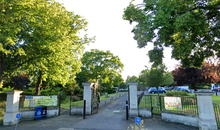

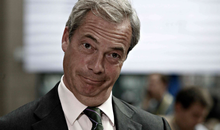
Nigel Farage in Albania: but why?
2025-07-01 09:13:12
Xama: The "Partizani" dossier is quite weak and without facts!
2025-07-01 09:04:47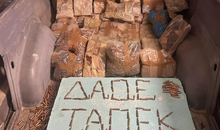

Foreign exchange, the rate at which foreign currencies are sold and bought
2025-07-01 08:35:39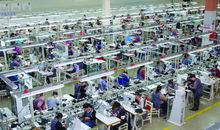
Fabricators again warn of factory closures and job cuts
2025-07-01 08:21:30
Horoscope, what do the stars have in store for you today?
2025-07-01 08:08:59
Scorching hot, temperatures reaching 40°C
2025-07-01 07:57:12
Morning Post/ In 2 lines: What mattered yesterday in Albania
2025-07-01 07:42:59
Recount after May 11, Braho: I had no expectations for massive vote trafficking
2025-06-30 22:54:18

Second hearing on the protected areas law, Zhupa: Unconstitutional and dangerous
2025-06-30 22:18:46



Israel-Iran conflict, Bushati: Albanians should be concerned
2025-06-30 21:32:42

Fuga: Journalism in Albania today in severe crisis
2025-06-30 21:07:11
"There is no room for panic"/ Moore: Serbia does not dare to attack Kosovo!
2025-06-30 20:49:53

Temperatures above 40 degrees, France closes nuclear plants and schools
2025-06-30 20:28:42
Lavrov: NATO is risking self-destruction with new military budget
2025-06-30 20:13:54
Turkey against the "Bektashi state" in Albania: Give up this idea!
2025-06-30 20:03:24

Accused of sexual abuse, producer Diddy awaits court decision
2025-06-30 19:40:44



Kurti and Vučić "face off" tomorrow in Skopje
2025-06-30 18:44:12
Tourism: new season, old problems
2025-06-30 18:27:23


Construction worker dies after falling from scaffolding in Berat
2025-06-30 17:51:44




Almost free housing: East Germany against depopulation
2025-06-30 16:43:06

Hamas says nearly 60 people killed in Gaza as Trump calls for ceasefire
2025-06-30 16:14:15
Drownings on beaches/ Expert Softa: Negligence and incompetence by institutions!
2025-06-30 16:00:03


European ports are overloaded due to Trump tariffs
2025-06-30 15:30:44
The prosecution sends two Korça Municipality officials to trial
2025-06-30 15:19:54

Lezha/ Police impose 3165 administrative measures, handcuff 19 drivers
2025-06-30 14:55:04
Young people leave Albania in search of a more sustainable future
2025-06-30 14:47:52
Record-breaking summer, health threats and preventive measures
2025-06-30 14:36:19


Constitution of the Parliament, Osmani invites political leaders to a meeting
2025-06-30 14:07:54

Heat wave 'invades' Europe, Spain records temperatures up to 46 degrees Celsius
2025-06-30 13:42:02
Accident in Vlora, car hits 2 tourists
2025-06-30 13:32:16

Kurti confirms participation in today's official dinner in Skopje
2025-06-30 13:03:27

Fight between 4 minors in Kosovo, one of them injured with a knife
2025-06-30 12:38:45
